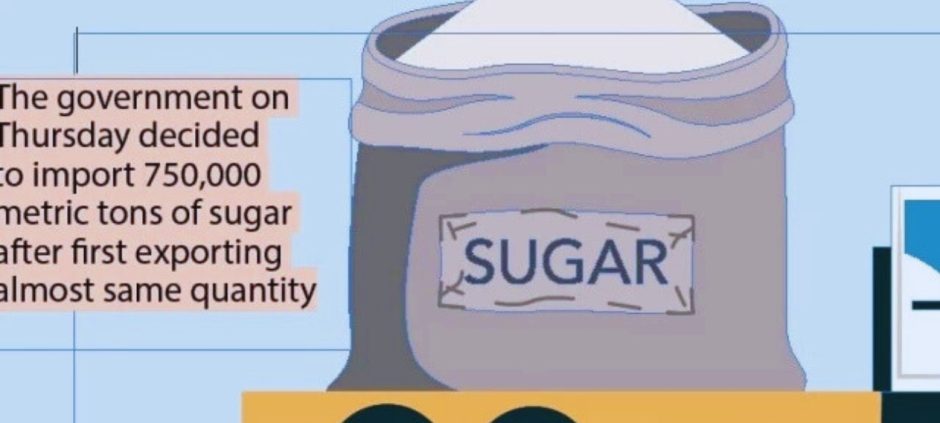In a controversial decision, the government has approved the import of 750,000 metric tonnes of sugar—just months after exporting a similar quantity—a move that has driven domestic prices to record highs and raised concerns over policy contradictions.
Deputy Prime Minister Ishaq Dar announced the import plan after chairing a high-level meeting, stating that 250,000 metric tonnes of raw sugar will be submitted for cabinet approval, while 500,000 metric tonnes of refined sugar have already received in-principle clearance.
Exports First, Imports Later: A Questionable Strategy
Data from the Pakistan Bureau of Statistics (PBS) reveals that the country exported 765,734 metric tonnes of sugar between July and May, earning Rs114 billion—a staggering 2,200% increase compared to the same period last year. However, this export surge led to a sharp spike in domestic prices, with sugar now selling between Rs170 and Rs190 per kilogram, up from Rs140 before exports began.
Critics argue that the government’s decision to first allow exports and then resort to imports has worsened the crisis, benefiting sugar millers at the expense of consumers. Despite claims of sufficient stock by the Ministry of National Food Security, the import decision suggests either an underestimated shortage or higher-than-projected demand.
Windfall Gains for Millers, Higher Costs for Consumers
In March, the government set the retail price of sugar at Rs164 per kilogram—13% higher than the previous cap—enabling millers to profit from both local sales and exports. The Pakistan Sugar Mills Association (PSMA), which has faced accusations of cartel-like behavior, negotiated prices with the government, yet retail rates remain unstable.
Experts and lawmakers have criticized the government’s interventionist approach, arguing that trade decisions should be market-driven rather than influenced by politically connected industrialists. PTI MNA Usama Mela emphasized that “export and import decisions should be left to farmers and market forces, not selective millers with political influence.”
PSMA’s Role and Future Measures
The PSMA, whose members directly benefited from exports, proposed measures to curb smuggling and suggested importing raw sugar under a tolling policy to address shortages. The association also recommended an earlier crushing season start date (November 1), though this is seen as a symbolic gesture amid criticism over export policies.
Meanwhile, Deputy PM Dar reiterated the government’s commitment to balancing consumer and producer interests, though the recent policy shifts have drawn skepticism. The move comes as Finance Minister Muhammad Aurangzeb engages in US trade talks—a role typically handled by the commerce ministry—further highlighting the government’s unorthodox economic management.











